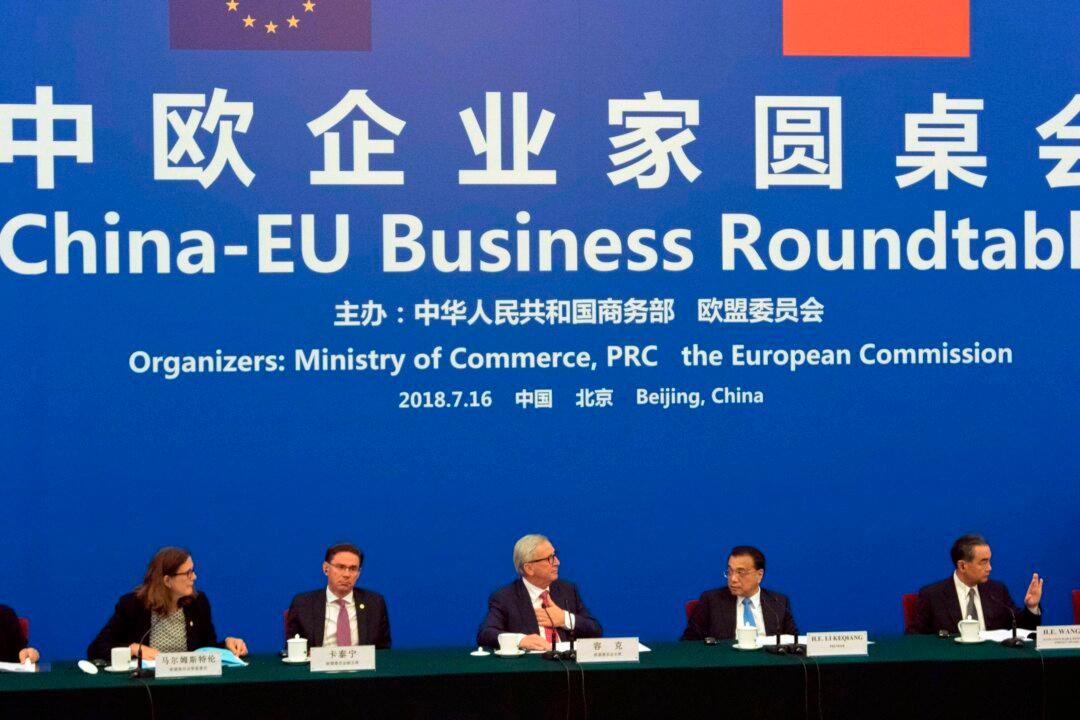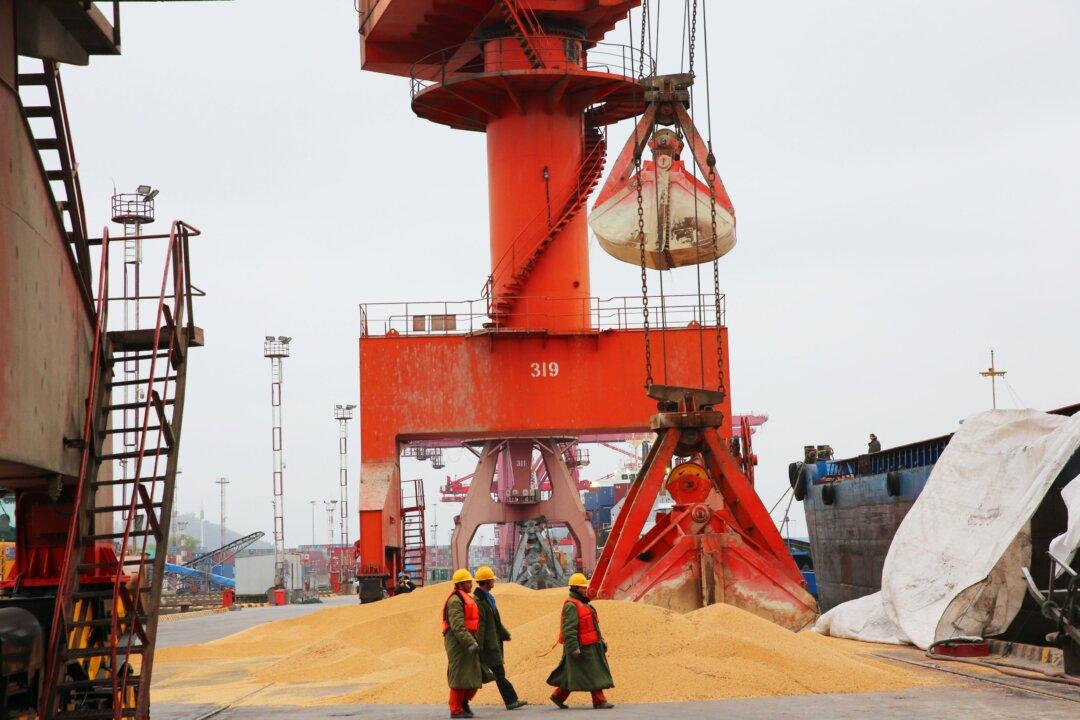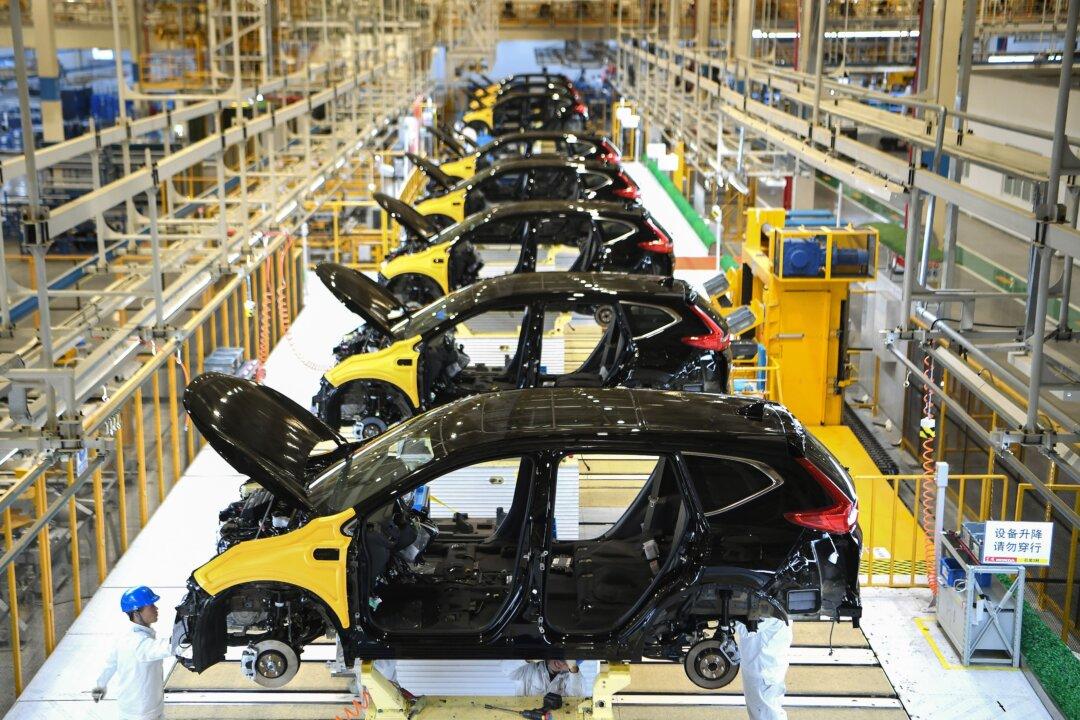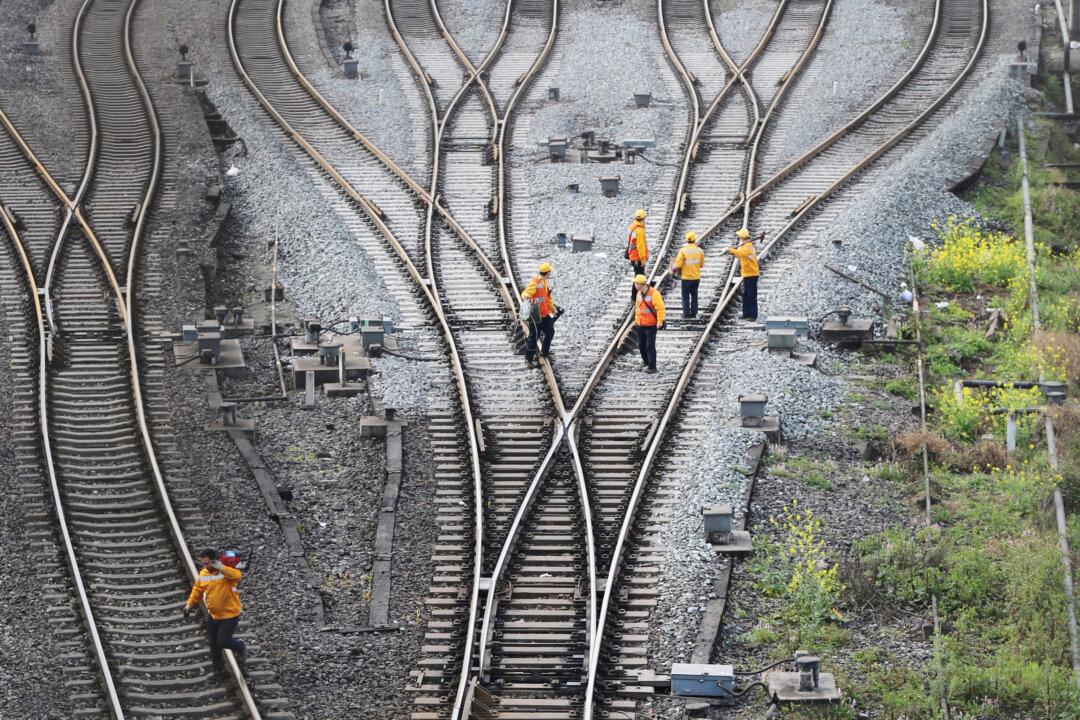The European Union Chamber of Commerce in China issued a new “Position Paper” demanding the same trade concessions the United States has sought in the Sino-U.S. trade war.
EU Chamber of Commerce President Jörg Wuttke published “Position Paper 2019/2020” that demands China to adopt “Competitive Neutrality” to end unfair protection and financial favoritism for its state-owned-enterprises (SOEs)—that is at the heart of the Sino-U.S. trade war.





